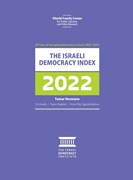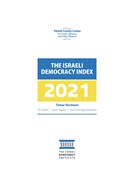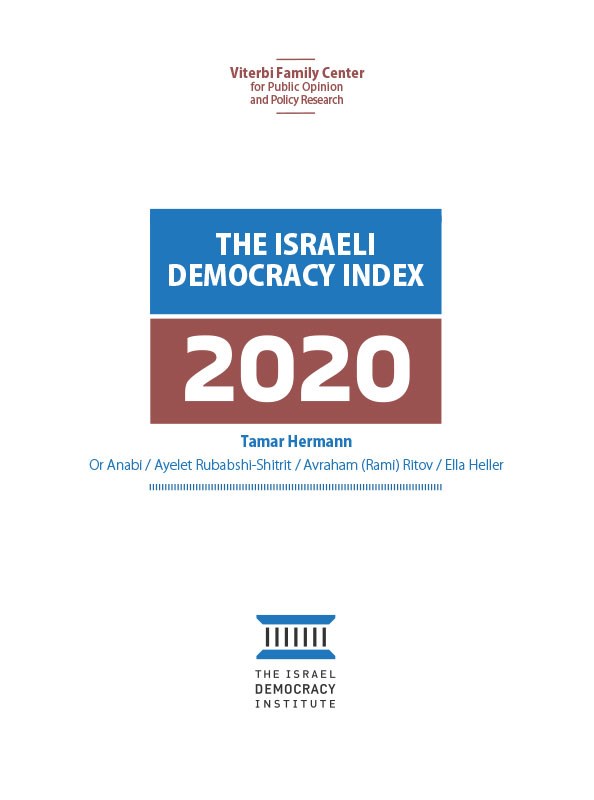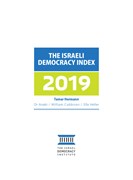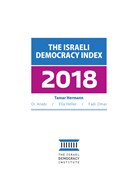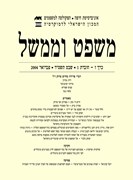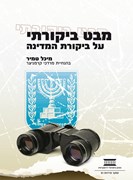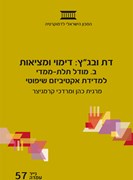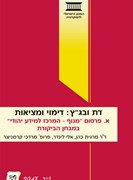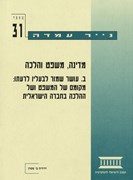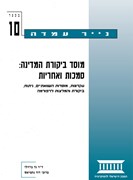

Publications Regarding Supreme Court
Articles

A Review of the Moves Designed to Weaken Israeli Democracy: Working Document
Written By: Adv. Anat Thon Ashkenazy, Adv. Daphne Benvenisty
Knesset Summer Session: April 2025 to July 24, 2025

Israel’s Shin Bet Saga, Continued
Written By: Prof. Amichai Cohen, Prof. Yuval Shany
Following Ronen Bar’s resignation and an HCJ judgment, Netanyahu has rushed to propose a new Shin Bet head, inviting legal challenges.

Arab Representation in the Judiciary is Under Threat
Written By: Adv. Lital Piller
By shifting power from professional bodies to political appointees the new law restructuring the Judicial Selection Committee is likely to reduce Arab representation and exacerbate their exclusion.

Exploiting the Public's Distraction to Pursue the Judicial Overhaul
Written By: Dr. Guy Lurie
Amidst the return to fighting in Gaza, the Minister of Justice is taking advantage of the public's eye being off the ball to hastily overhaul Israel's judicial system.

Majority of Israelis Think PM Netanyahu Should Accept Responsibility for Oct 7 and Resign – Now or After the War
Written By: Prof. Tamar Hermann, Dr. Lior Yohanani, Yaron Kaplan, Inna Orly Sapozhnikova
Around half of Israelis think that it's unlikely that President Trump will turn away from Israel, if he thinks its policies are not aligned with US interests, while close to 40% think chances are fairly high or high; 73% of the total sample support continuing with the second stage of the hostage agreement and securing the release of all the hostages.

Israel and the Freedom in the World Report: A Pattern of Continuing Decline
Written By: Dr. Assaf Shapira, Prof. Ofer Kenig
In just over a decade, Israel’s score in the report published by Freedom House has fallen by 8 points, a decline that now puts it alongside countries such as Brazil and Namibia.

Israel’s Renewed Judicial Overhaul
Written By: Prof. Yuval Shany, Prof. Amichai Cohen
The battle over Israel’s legal system has resumed, threatening judicial independence.

A Chief Justice Under Attack
Written By: Prof. Suzie Navot
While the selection of Justice Amit as President of the Supreme Court was done in accordance with the relevant legislation, the Justice Minister has declared the procedure "fundamentally improper and illegal." His refusal to recognize the selection creates a precedent that may lead to the deterioration of the authority of other institutions. This is what the beginning of a constitutional crisis looks like.

What is the Significance of the Justice Minister’s Declaration that he Will Not Cooperate with the President of the Supreme Court?
Written By: Dr. Guy Lurie
The lack of cooperation between the Minister of Justice and the President of the Supreme Court has numerous consequences that will, among other things, harm the services provided by the judiciary to the citizens of Israel.

A Legitimate Supreme Court President
Written By: Dr. Guy Lurie
Following Justice Isaac Amit's selection as Supreme Court President, Minister of Justice Levin immediately declared he would refrain from any collaboration between them, describing the selection process as unlawful. This announcement is both factually incorrect and a serious dereliction of his duties.

Ministers Levin and Saar's Proposed Changes to the Judicial Selection Committee
Written By: Dr. Guy Lurie
Justice Minister Yariv Levin and Foreign Minister Gideon Sa’ar presented their proposed changes to the composition of the Judicial Selection Committee (JSC) as a compromise aimed at achieving a gradual change in the judicial selection process, but many constitutional experts worry that the plan will have dire consequences resulting in the politicization of Israel’s judicial selection process.

The Two Coalitions Israel Needs Now
Written By: Yohanan Plesner
It is increasingly clear that Israel’s future depends on the forging of two coalitions. One is a multinational alliance determined to turn the Palestinian issue from a driver of conflict into an engine of peace. The other, is an internal Israeli coalition ready to pursue a series of bold social, economic, and political reforms.

The Sde Teiman HCJ Judgment: Too Little, Too Late?
Written By: Prof. Amichai Cohen, Prof. Yuval Shany
A recent judgment of the Israeli Supreme Court held that conditions in a notorious detention center must comply with Israeli law.

Understanding the Supreme Court's Ruling: Selection of the Supreme Court President
Written By: Dr. Guy Lurie
The Israeli Supreme Court recently issued a pivotal ruling, instructing the Minister of Justice to convene the Judicial Selection Committee and select a new President of the Supreme Court. This decision come after nearly a year in which this permanent position has remained vacant.

Appointing a President for the Supreme Court: Justice Levin's Actions Contravene the Law
Written By: Prof. Suzie Navot
After the Minister of Justice Yariv Levin refrained from convening the Judicial Selection Committee to appoint a Supreme Court President, the Supreme Court ruled that the Committee must convene to appoint a President—Prof. Suzie Navot analyzes the Court's decision.

So Haredi Men Must be Drafted. What Now?
Written By: Dr. Eran Shamir-Borer, Adv. Mirit Lavi
Nine Supreme Court Justices ruled unanimously that the state must act to enforce Israeli conscription legislation and apply it to Haredi men. For this to be realized the IDF and the defense establishment must also make significant changes. These are the issues the IDF should take into consideration.

A Sharp, Unequivocal, and Unanimous Supreme Court Decision to Draft Haredim
Written By: Prof. Suzie Navot
The Supreme Court ruling on June 25th addresses the question of whether the government is operating in accordance with the law. It determined that the state must act in accordance with the law and act to draft ultra-Orthodox. It also connects between the issue of exemptions and the criteria for eligibility for yeshiva budget funds.

The Independence of the Israel Police and the Limits of Political Intervention in Its Operations
Written By: Dr. Eran Shamir-Borer, Adv. Mirit Lavi
Israeli Supreme Court Hearing on what is known as the "Ben Gvir Amendment" to the Israel Police Ordinance.

Haredi Enlistment According to the Supreme Court Justices: "We intend to decide"
Written By: Prof. Suzie Navot
The discussion in the Supreme Court yesterday was not about whether a law exempting yeshiva students harms the principle of equality. It was about a much more basic question: is the State of Israel acting in accordance with the principle of the rule of law—that is, can yeshiva students be exempted from enlisting in the IDF, when there is no law allowing for this.
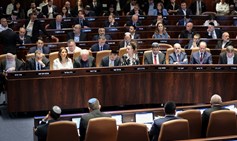
The Judicial Overhaul and Anti-Democratic Initiatives
Written By: Adv. Anat Thon Ashkenazy, Adv. Daphne Benvenisty
Judicial overhaul initiatives, along with other anti-democratic measures, have continued to be promoted by the government and the coalition in the Knesset. This document outlines the various actions taken in government that weaken the Israeli judiciary and democracy at large.
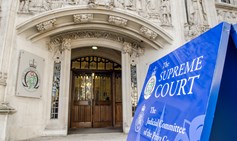
Appointment of Judges to High Courts in Democratic Countries: A Comparative Study
Written By: Prof. Amichai Cohen, Dr. Guy Lurie
The research examined 42 countries included all the OECD member states along with other leading democratic countries.
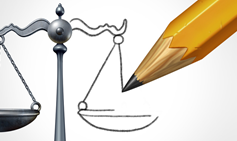
Completing Israel’s Constitutional Process
IDI is currently in the process of composing a revised proposal for a full constitutional arrangement for the State of Israel as it marks 75 years of independence.
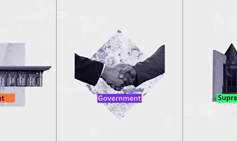
The High Court Wars: The Constitutional Revolution and the Counter-Revolution
Written By: Prof. Amichai Cohen
The appointment of conservative judges to the court, and even the enactment of a certain version of the override clause, will not bring about the destruction of the Supreme Court, and will certainly not turn Israel into a totalitarian state. However, the continued attacks on the Court, and the potential passage of the most extreme proposals pose a serious challenge to Israeli democracy.
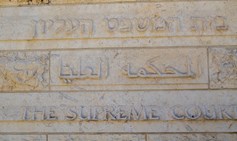
Supreme Court Should Retain Power – Survey
Written By: Prof. Tamar Hermann, Dr. Or Anabi
The majority of Israelis think that the Supreme Court should retain its ability to strike down legislation that contravenes the country’s Basic Laws – and only 16% said that the Judicial Selection Committee that appoints justices should be politicized by increasing the number of elected officials serving on it.

Terms of Office of Supreme Court Justices
Written By: Dr. Guy Lurie
In Israel, judges sit on the bench until they reach the age of 70, while advocates for changing the current method of their appointment often support the idea of limiting Supreme Court judges’ tenure.

2021 Israeli Democracy Index: Israel’s Legal System
Written By: Prof. Tamar Hermann, Dr. Or Anabi, Yaron Kaplan, Inna Orly Sapozhnikova
A small majority agree that the Supreme Court should have the power to overturn laws passed by the Knesset when democratic principles are contradicted, while a high rate of the Israeli public, primarily from the right-wing and ultra-Orthodox, believe that the selection of judges in Israel is based on political considerations.

Why is Public Trust in the Supreme Court Falling?
Written By: Dr. Nadiv Mordechay
In an age of waning trust in state institutions and an ongoing health and democratic crisis, the public must be able to look towards the courts as a staunch defender of human rights and democratic structure.
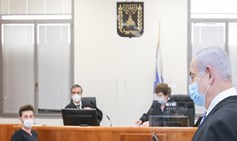
A Prime Minister on Trial: Qs and As
Written By: Dr. Amir Fuchs
The Prime Minister's trial reconvenes with a pandemic raging and the elections camping continuing. What can we expect?
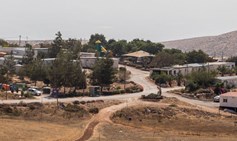
When the Supreme Court Struck Down the Regularization Law
Written By: Prof. Amichai Cohen
Israeli's Supreme Court ruling on the Regularization Law touches on the heart of the legal battle inherent in the power struggle between settlers and Palestinians.
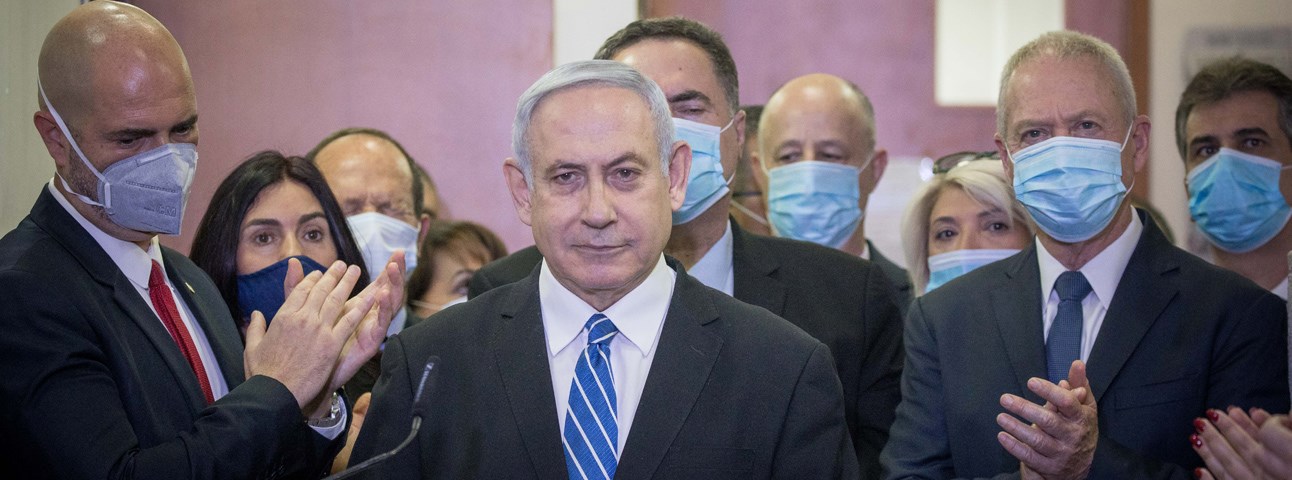
On the Street or in the Courtroom?
Written By: Prof. Yedidia Z. Stern
The Prime Minister’s supporters are trying to entrench a perception among the public that he is facing a political – rather than a criminal – trial.

The Rule of Law Over the Ruler
Written By: Prof. Yedidia Z. Stern
It's one of democracy's substantial achievements: just like every citizen, Netanyahu will stand before 3 judges, whose task is to decide whether he is innocent or guilty

IDI's Legal Experts Hold Online Briefing Ahead of Netanyahu's Trial
Written By: Prof. Yuval Shany, Dr. Amir Fuchs
With Prime Minister Netanyahu's groundbreaking trial is set to commence next week, Professor Yuval Shany, IDI's Vice President of Research, and Dr. Amir Fuchs, the head of the Defending Democratic Values Program, briefed journalists on how the court process will proceed and the long-term legal implications of trying a sitting prime minister.
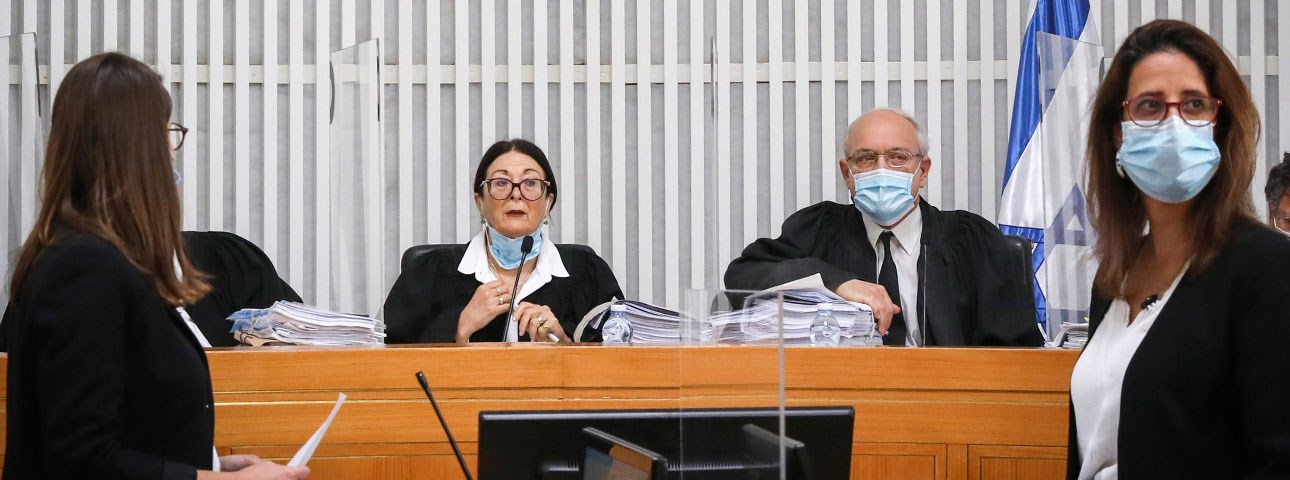
Live Broadcasts from the Supreme Court
Written By: Yair Sheleg
Live broadcasts brings a breath of fresh air and a better understanding of the Supreme Court
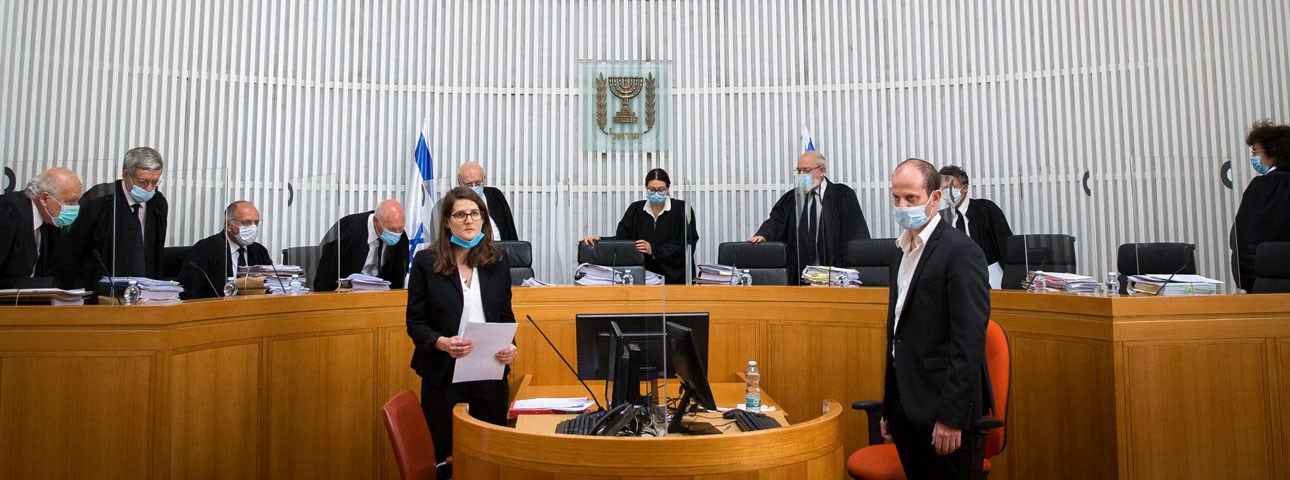
Sanity Prevails: 11 to 0
Written By: Prof. Yedidia Z. Stern
Israel's High Court handed down a unanimous decision - and the public saw for themselves that there was no devious plot to undermine the separation of powers.

Moment of Truth for Judicial Restraint
Written By: Prof. Yedidia Z. Stern
Many Israelis attribute a left-wing bias to the Supreme Court and accuse it of extreme activism, but the hearings that were broadcast live highlight the vast gulf between the Court's image and the reality

Bibi is Given the "Go Ahead" by Supreme Court
Written By: Dr. Amir Fuchs
IDI’s Dr. Amir Fuchs speaks with Richard Pater of Bicom about the recent Supreme Court hearing and the rulings they handed downs regarding the new government

PM Under Indictment - A Dangerous Precedent
Allowing Netanyahu to form a government would constitute a conflict of interest and would result in a negative and irreversible precedent for the rule of law
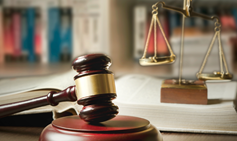
Court Systems Worldwide During the Coronavirus
Written By: Dr. Guy Lurie
Israel is not the only country in which the court system has been curtailed, or had its activity modified, as a result of the coronavirus pandemic. Many countries are taking such measures, while at the same time striving to refrain from harming citizen's basic right of available access to courts.
Included are several examples from around the world.

IDI Releases 2019 Democracy Index
Written By: Prof. Tamar Hermann, Dr. Or Anabi, Dr. William Cubbison, Ella Heller
50% of Israelis Believe that the State of the Country is 'Good'. Conversely: 58% of Israelis Believe that Their Leadership is Corrupt and 59% of Israelis Think that Supreme Court Judges’ Rulings are Politically Biased

Immunity for the Prime Minister: Explainer
Written By: Prof. Yuval Shany, Dr. Amir Fuchs
IDI experts explain Israel’s immunity law, what happens when it’s requested and what the implications may be for the political system.

A Legal or Political Matter?
The political system is being dragged into elections for the third time within a year, for what seem to be extraneous reasons related to the question of how Netanyahu will handle his cases

Israeli Voters - Not Judges
Written By: Prof. Yedidia Z. Stern
Israeli Voters, Not Judges, Must Determine Who Will Lead the Country Next
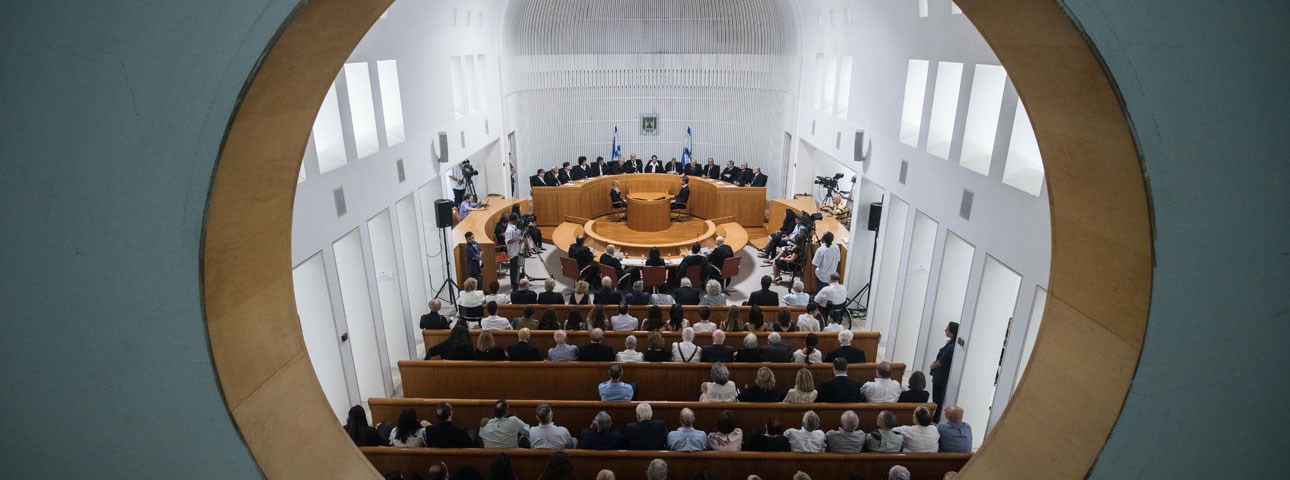
Assault on Israel's Judicial System: The Angel of History is Watching Us
Written By: Prof. Yedidia Z. Stern
Justice Minister Amir Ohana,has launched a fierce attack against the State Attorney’s Office. The Prime Minister who appointed him would be wise to remember that the angel of history is peeking over his shoulder.
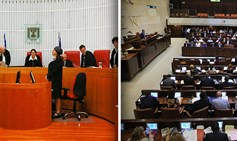
The Rule of Law: The Attack on the Principle of “All are Subject to the Law” in Israel
Written By: Dr. Amir Fuchs
Like all democracies, the principle of the "Rule of Law" exits in Israel. In recent years, there have been quite a few attempts to overcome this tenant, potentially causing long-lasting damage to public confidence in the justice system. Dr. Fuchs explains.
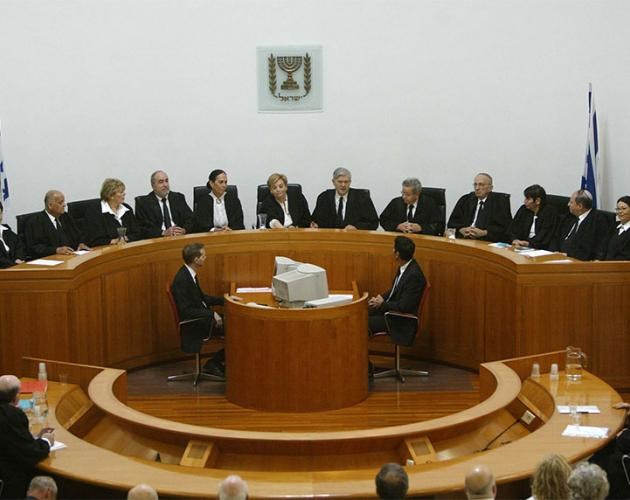
The Knesset and the Court: Is This Israel’s Override Election?
Written By: Yohanan Plesner
"This election will be less about which candidate ends up as prime minister, but rather the real possibility of radical judicial reforms that might soon pass in the Knesset and which would limit the Supreme Court’s ability to perform crucial oversight over the political system."
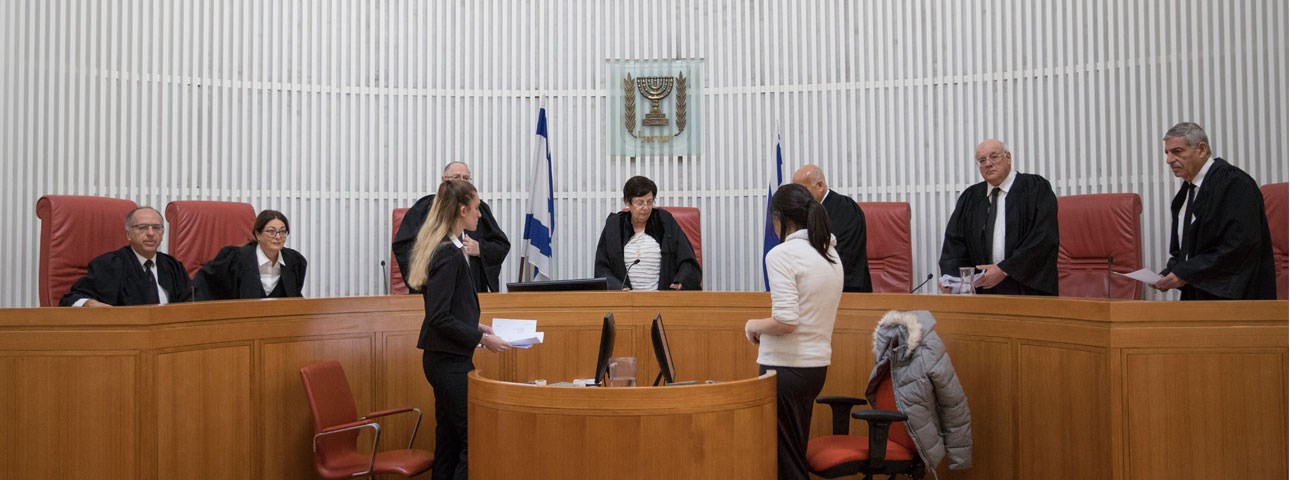
Whatever Happened to the Override Clause?
Written By: Prof. Yuval Shany
It turns out that voters actually want robust judicial oversight - which explains why the Override Clause and placing limitations on judicial review have not been prominant in the election campaign
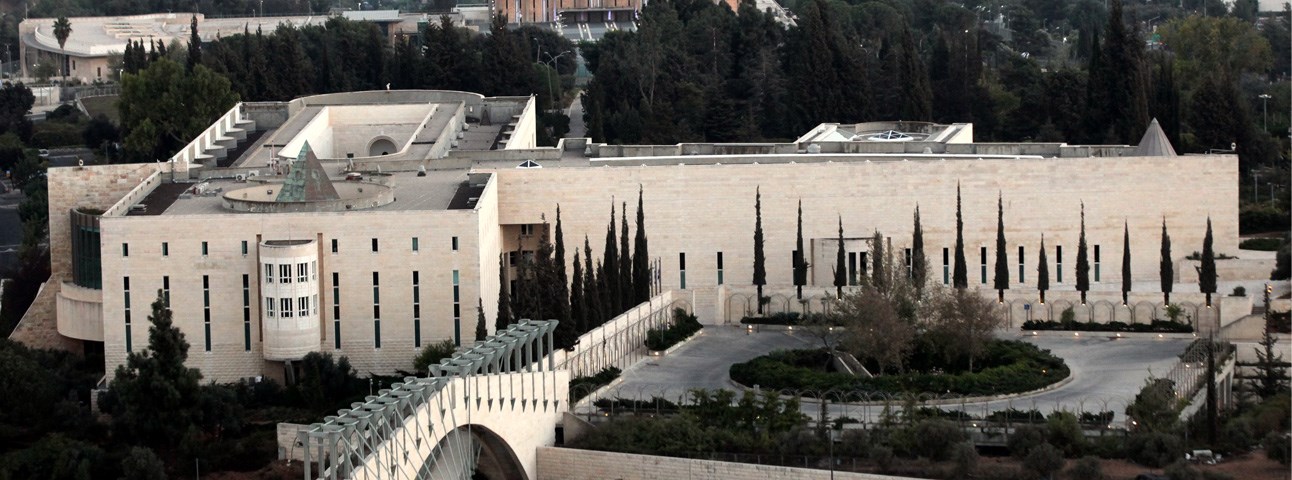
The Supreme Court Doesn't "Tie Hands"
Written By: Dr. Amir Fuchs
On claims that the High Court ties the security establishment's hands, Dr. Amir Fuchs says "the truth is that when authoritative figures from the defense establishment appear before the court to support some important security requirement, the court almost always adopts their argument".

Attempts to Curtail the Supreme Court
Written By: Yohanan Plesner
The Israel Democracy Institute offers a look inside efforts to reduce politicization of Israel's Supreme Court.
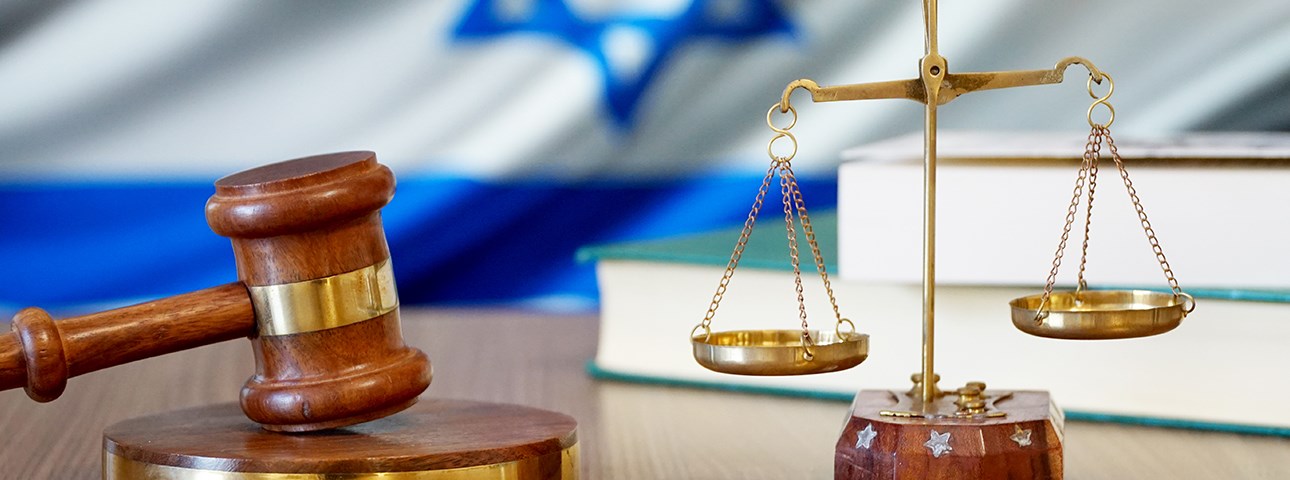
Overwhelming Support for Retaining Judicial Review Among Right Wing-Voters
A special IDI survey examined attitudes of right wing voters and found that 42% of right-wing voters support a unity government and that 43% oppose additional political power for elected officials at the expense of the Judicial Branch of government.

The Positions of the Israeli Right-Wing
Written By: Prof. Tamar Hermann, Dr. Or Anabi
This special survey examines attitudes of right wing voters on a number of issues related to September's election including the possibility of a unity government and recent proposals that would limit judicial review and oversight of Knesset and government decisions.

No Female Pilots in IDF? – Get Over it!
New IDI Campaign to Warn Against Attempts to Decimate Supreme Court and Grant Unlimited Power to Politicians

Judicial Review Under Review
Written By: Dr. Amir Fuchs
Israel’s judiciary is under assault, according to some, or experiencing a necessary corrective to rampant judicial activism, according to others. Dr. Amir Fuchs, legal expert and the head of the Defending Democratic Values project at the Israel Democracy Institute, walks through the Knesset’s attempt to change the judiciary and the balance of powers in Israel, what’s behind it, and what it means for the country.

Supreme Court Decision of Combatants for Peace v. Minister of Defense
Written By: Dr. Idit Shafran Gittleman, Tamar Hostovsky Brandes
A controversial decision delivered by the Supreme Court on May 2 could be an important test case for its ability to withstand political attacks, which call to curb the court’s authority and power
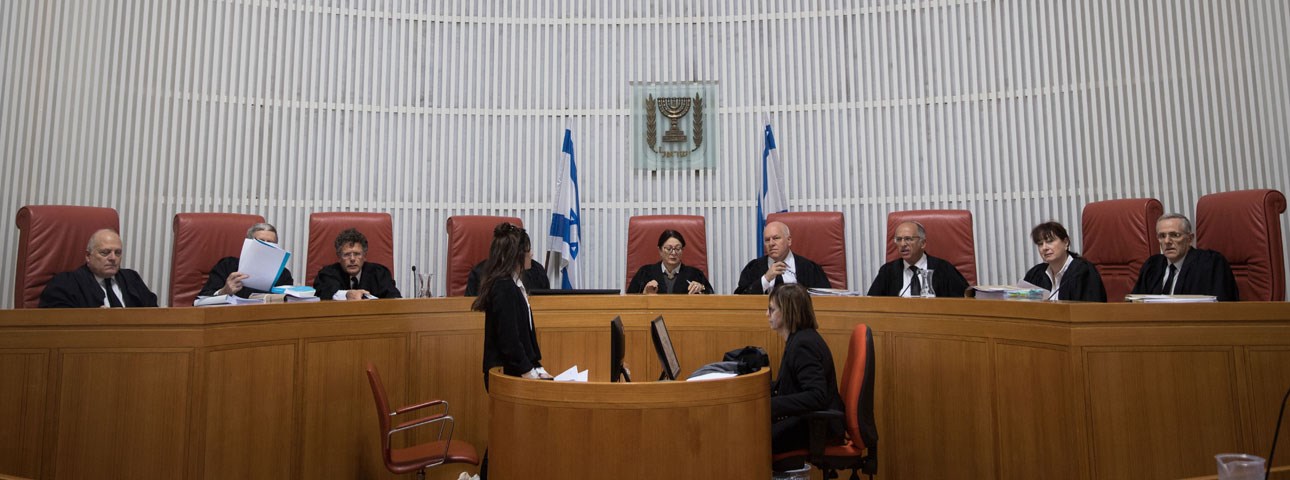
A Needle on the Israeli Compass
Written By: Prof. Yedidia Z. Stern
The conservatives who think the court is moved by a malicious intent to stamp out politics are mistaken. Our High Court of Justice is squeaky clean, and of the highest possible caliber

Presentation of the Israeli Democracy Index to the President of Israel
Written By: Yohanan Plesner
"Our central mission—and we see you as a partner in this—is to strengthen Israel’s democratic core in the spirit of the Declaration of Independence" says Yohanan Plesner in his address to President Reuven Rivlin.

Government Ministers to Vote on Bill to Override Supreme Court Decisions
Written By: Lahav Harkov | Jerusalem Post
The Prime Minister is currently fighting to remove the Supreme Court's power to strike down Knesset legislation, thereby turning the last protector of human rights in Israel into merely an advisory board. He is even threatening elections over the issue.

The end of the delegitimization of the Supreme Court
Written By: Prof. Yedidia Z. Stern
“The campaign to remake the Supreme Court has been completed” said Justice Minister Shaked - so now with its new and more conservative profile, there is no longer any justification for the delegitimization of the Supreme Court.
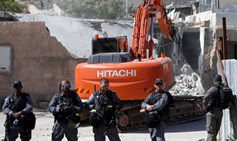
Time for Home Demolitions to be Tested by the Supreme Court
Written By: Adv. Tal Mimran, Nadiv Mordechay
Are home demolitions legal? And are they effective? Both IDF commanders and Israeli Supreme Court judges have raised doubts on the matter. In an op-ed published by The Jerusalem Post, IDI's Tal Mimran says the time has come to reevaluate Israeli policy.

The Israel Democracy Institute to heads of the coalition and cabinet ministers: The bill to obliterate the Supreme Court's ability to disqualify Knesset candidates is reminiscent of the Council of Guardians of Iran
Following the advancement of an amendment to a Basic Law on the issue of removing the authority of the Supreme Court to intervene in decisions of the Central Elections Committee to cancel candidates or lists from participating in elections, the Israel Democracy Institute (IDI) sent out a sharply worded policy paper opposing this proposal.

IDI on the Graffiti on the Supreme Court: It is on the Prime Minister and party leaders to act to protect the Supreme Court
The Israel Democracy Institute (IDI) spoke out strongly against the graffiti painted on the Supreme Court building, discovered Nov. 4, and said it is a direct result of the slander that has been recently put out there against the court system by Israeli public activists. IDI stressed that it is the job of the Prime Minister and the parties to defend the rule of law.
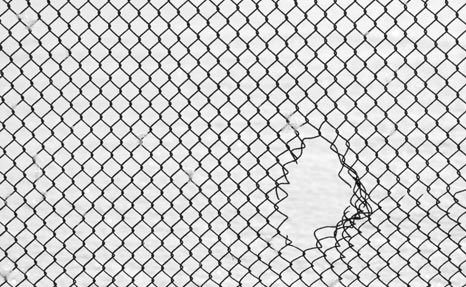
Overriding the Supreme Court: A Breach in the Wall of Democracy
Written By: Dr. Amir Fuchs
Dr. Amir Fuchs discusses the proposal to add an override clause to Israel's Basic Law: Human Dignity and Freedom that would enable the Knesset to bypass the High Court and deal a a severe blow to the main safeguard of human rights and minorities in Israel.
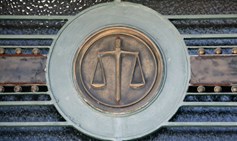
Mourning for Gazan Children Isn't Left-Wing
Written By: Prof. Mordechai Kremnitzer
IDI Vice President Prof. Mordechai Kremnitzer discusses the High Court of Justice's decision to uphold the Israel Broadcasting Authority's rejection of an infomercial in which the names of Gazan children who were killed in Operation Protective Edge would have been read aloud.
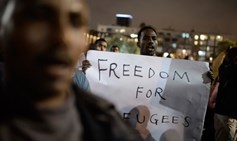
The Prevention of Infiltration Act in the Supreme Court: Round Two
Written By: Prof. Reuven (Ruvi) Ziegler
IDI researcher Dr. Reuven (Ruvi) Ziegler explains why he believes the Supreme Court should overturn Amendment No. 4 of the Prevention of Infiltration Act just as it invalidated its predecessor.

Is "Israeli" a Nationality?
Written By: Jay Ruderman, Prof. Yedidia Z. Stern
Should the State of Israel recognize "Israeli" as a nationality? IDI Vice President Prof. Yedidia Stern and Jay Ruderman assert that it is imperative for the State of Israel to continue distinguishing between citizenship and nationality.

A Truly Supreme Court
Written By: Prof. Mordechai Kremnitzer, Dr. Guy Lurie
In an op-ed in TheMarker, IDI Vice President Prof. Mordechai Kremnitzer and Dr. Guy Lurie discuss the benefits of establishing a new appellate court between the district courts and the Supreme Court.

Human Rights under Attack
Written By: Dr. Amir Fuchs
IDI Researcher Attorney Amir Fuchs discusses two indirect threats to human rights in Israel: attacks on the Israeli Supreme Court and attacks against Israeli human rights organizations.
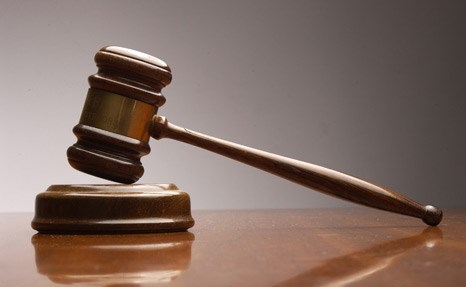
What Can We Learn about Israeli Policy Making from the Supreme Court's Ruling on the Anti-Infiltration Law?
Written By: Dr. Talya Steiner
Attorney Talya Steiner warns that a Supreme Court's judgment that struck down an amendment of Israel's anti-infiltration law as unconstitutional points to significant flaws in Israel's process of policy-making.

The Security Check Appeal: Another Extension of the Judgment
Written By: Eli Bachar
Eli Bahar, former legal adviser to the General Security Service, analyzes the Israeli Supreme Court’s decision to postpone ruling on a petition requesting the elimination of ethnic security checks in Israeli airports.

On an Appropriate Evacuation and Inappropriate Petitions for Postponement
Written By: Dr. Amir Fuchs
Attorney Amir Fuchs responds to Research Fellow Yair Sheleg's article "Appropriate and Inappropriate Evacuation," and takes exception to some of the arguments that it raised regarding the evacuation of settlements in Judea and Samaria on the basis of property rights.

The Tal Law: Judicial Responsibility at its Best
Written By: Prof. Mordechai Kremnitzer
Prof. Mordechai Kremnitzer presents a contrasting view to Prof. Yedidia Stern's assertion that the Israeli Supreme Court's ruling on the exemption of ultra-Orthodox men from military service in Israel is "<a href="http://en.idi.org.il/analysis/articles/judicial-activism-at-its-height">Judicial Activism at its Height</a>."

Basic Law: Legislation – A Lethal Blow to the Supreme Court
Written By: Prof. Mordechai Kremnitzer, Dr. Amir Fuchs
IDI Vice President Prof. Mordechai Kremnitzer and Adv. Amir Fuchs analyze the proposed legislation that would allow the Knesset to reinstate laws that have been struck down by the Israeli High Court and warn of a threat to judicial review and civil liberties.

The Tal Law: Judicial Activism at its Height
Written By: Prof. Yedidia Z. Stern
The Supreme Court's decision to strike down the Tal Law, after 30 years of avoiding the issue of the exemption of ultra-Orthodox Jews from military service, is an expression of judicial activism that illustrates the transformation that the Israeli Supreme Court has undergone in the last generation. In this op-ed, originally published in Hebrew in <em>Makor Rishon</em>, IDI Vice President Prof. Yedidia Stern asserts that the Court went too far in this ruling and that its activism is hard to justify.

Neeman's "Jewish Poker" Game
Written By: Dr. Amir Fuchs, Prof. Mordechai Kremnitzer
Prof. Mordechai Kremnitzer and Attorney Amir Fuchs explain why they see the "Bar Association Bill" as undermining the rule of law. This bill would change the way that the Bar Association's representatives to the Judicial Appointments Committee are selected, and would apply retroactively.

Conscription of Haredi Yeshiva Students to the IDF and the Emerging Constitutional Crisis
Written By: Dr. Nadav Dagan, Prof. Amichai Cohen, Dr. Amir Fuchs
The Supreme Court is currently conducting a hearing that could signal a constitutional crisis—a contempt-of-court motion filed in the case of the Movement for Quality Government in Israel v. Minister of Defense (5819/24), which argues that the government has not complied with the Court’s ruling of November 19, 2025 requiring it to formulate an effective enforcement plan for ultra-Orthodox (Haredi) conscription.
This explainer reviews the background to the Court’s ruling, and considers whether Israel merely faces the risk of a constitutional crisis, or whether such a crisis is already here.





